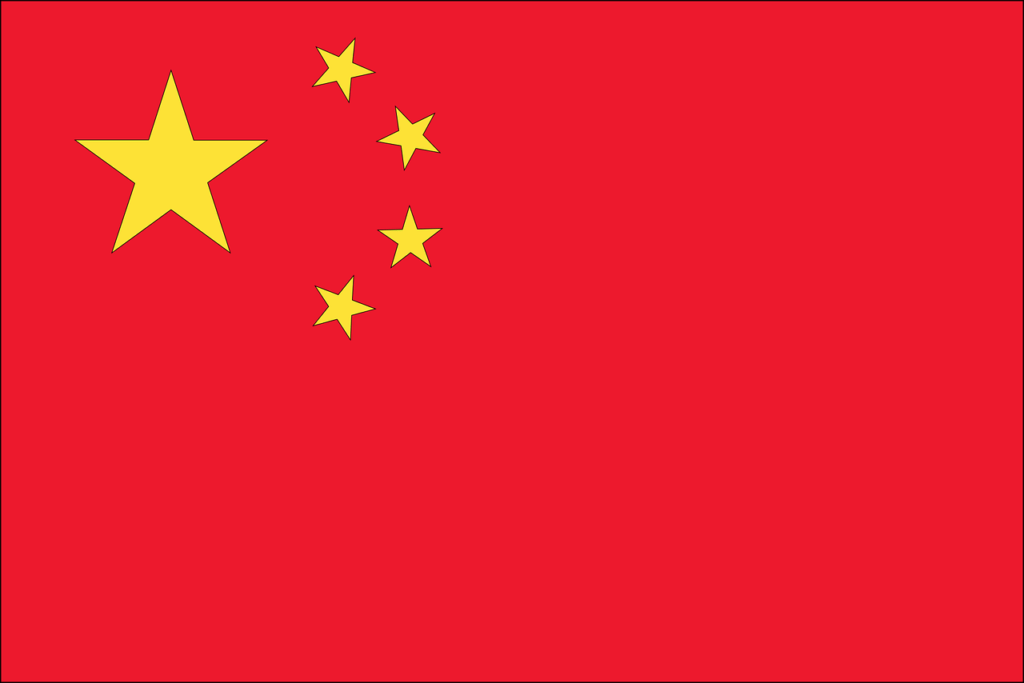
The government maintained insufficient efforts to protect victims, including by continuing to facilitate the forced labor of its citizens domestically, and by failing to identify or provide services to PRC citizens subjected to forced labor abroad. For the sixth consecutive year, the government did not report how many victims it identified or referred to protection services, although media reports indicated authorities continued to remove some victims from their exploitative situations. The government delayed or altogether ceased identification and repatriation of foreign trafficking victims while diverting law enforcement resources to pandemic mitigation measures in 2022. Based on media and NGO reports, authorities continued to prioritize the identification of women and girls in sex trafficking to the near total exclusion of efforts to identify forced labor victims. The overly narrow definitions inherent to the PRC’s anti-trafficking statutes significantly limited the scope of victim identification among key demographics; in practice, authorities did not screen men or boys over the age of 14 for any signs of exploitation in sex trafficking or forced labor. Authorities did not provide information on their use of an app-based system to track and remove missing children from exploitation – a population that likely included human trafficking victims – during 2022 (compared with more than 4,300 missing children recovered in 2021, and 4,600 in 2020); for the third consecutive year, authorities did not provide relevant statistics or information on subsequent identification or referral measures (compared with 120 victims identified among more than 4,000 children in 2019). The Ministry of Human Resources and Social Services (MOHRSS) operated and publicized three 24-hour hotlines that could benefit potential trafficking victims – one for labor issues, one for child protection, and one for gender-based violence – but authorities did not provide statistics on their use.
PRC authorities participated in a training activity organized by an international organization on victim identification, referral, and service provision – while continuing to demonstrate significant shortcomings in all three areas – and a multilateral consultation workshop for the development of a Transnational Referral Mechanism for the Greater Mekong Subregion in 2022. The PRC lacked a standardized national referral mechanism, but MPS maintained written instructions promulgated in 2016 for law enforcement officers throughout the country aiming to clarify procedures for identifying trafficking victims among individuals in commercial sex and forced or fraudulent marriage. MPS officials reportedly maintained a procedure to screen for trafficking indicators among individuals arrested on suspicion of “prostitution” crimes. A 2016 policy limiting the detention of individuals arrested for alleged criminal sex to 72 hours remained in place. Despite the existence of these procedures, law enforcement officials in prior years arrested and detained foreign women on suspicion of “prostitution” crimes without screening them for indicators of sex trafficking – sometimes for as long as eight months – before deporting them for immigration violations; observers noted this likely continued in 2022. Due to a lack of formal identification procedures, authorities likely detained and arrested some unidentified trafficking victims. Authorities penalized victims of trafficking for commercial sex and immigration offenses committed as a direct result of being trafficked. Authorities may have detained some victims of sex trafficking – alongside individuals with drug addictions and men arrested for commissioning sex acts – in government “rehabilitation camps” known to have forced labor conditions.
The government did not provide data on victim service provision in 2022. The government previously reported maintaining at least 10 shelters specifically dedicated to care for PRC trafficking victims, as well as eight shelters for foreign trafficking victims and more than 2,300 multi-purpose shelters nationwide that could accommodate trafficking victims; it did not provide any information on these shelters for the fourth consecutive year. The Ministry of Civil Affairs, the All-China Women’s Federation, and community-based NGOs could provide victims with shelter, medical care, counseling, legal aid, and social services, as well as rehabilitation services in some cases; the government did not report providing these services to victims. Access to specialized care depended on victims’ location and gender; experts noted there were ad hoc referral procedures and an acute lack of protection services in the south, and male victims were far less likely to receive care nationwide. The law entitled foreign victims to the same benefits as PRC nationals, but this likely varied significantly in practice. As in previous years, rural border officials received reports involving the sex trafficking and forced labor of some foreign women and girls via forced and fraudulent marriage to PRC men, and officials provided them with temporary shelter and helped to fund and escort their repatriation. However, this assistance was reportedly ad hoc, often heavily bureaucratic, and less prevalent among front-line officers working farther inland, where some foreign victims escaped, reported these abusive circumstances to the authorities, and were summarily arrested and forcibly returned to their PRC “husbands” – sometimes in exchange for bribes from the men’s families. Authorities reportedly detained victims who sought help for up to eight months for immigration violations; authorities reportedly also gave victims the “choice” to return to their PRC “husbands” or be repatriated to their country of origin. If victims chose repatriation, authorities did not allow them to take their children with them. Authorities prevented independent legal experts from visiting or communicating with a woman identified as a victim of forced concubinage and child bearing in Jiangsu, did not report if they had provided her with victim services, and censored social media posts about the case. Widespread stigma against sex trafficking victims likely continued to discourage many from accessing protection services. MOHRSS reportedly could provide compensation and some protection services to labor trafficking victims, but authorities did not report information on the number of victims MPS referred for these services. Implementation of a law placing foreign NGOs in the PRC under MPS supervision continued to impose burdensome requirements and restrictions on the activities of civil society organizations, including those able to provide services for trafficking victims and communities vulnerable to the crime. Foreign embassies in the PRC could provide shelter or other protection services to victims, but pandemic mitigation measures likely limited these services in 2022.
The government did not report providing support to victims who assisted with investigations or prosecutions of trafficking cases in 2022. Authorities did not condition access to victim care on cooperation with law enforcement, but they did require victims to provide information to police and did not provide alternatives to speaking with law enforcement during investigations. The law entitled victims to obtain restitution during criminal prosecutions and claim compensation through civil lawsuits against traffickers, and observers assessed authorities likely did not apply this benefit equitably across all cases. The Guangzhou Intermediate People’s Court ordered multiple criminal defendants pay 395,000 RMB ($57,270) to the parents of a child trafficking victim, which authorities publicized as the first such order for a human trafficking case. Some forced marriage cases, many of which continued to demonstrate corollary indicators of sex trafficking and forced labor, were mediated at the village level; these proceedings rarely culminated in a guilty verdict through which to grant restitution to the victims. In prior years, MOJ officials reportedly provided some freelegal assistance to trafficking victims, but government-affiliated NGO observers noted some victims faced difficulties accessing these services or had to pay for their own representation. PRC legal aid provisions provided legal assistance only for criminal defendants; authorities did not provide this assistance to victims involved in cases as witnesses or plaintiffs. The judicial system did not require victims to testify against traffickers in court and allowed prosecutors to submit previously recorded statements as evidence; however, authorities required some foreign victims to stay in the PRC to assist in police investigations until their conclusion.
The government’s previously reported victim assistance abroad – including its eight border liaison offices with Burma, Laos, and Vietnam, along with victim funds, hotlines, and government-to-government agreements to assist victims – was not efficacious. The government did not report data on victim repatriation in 2022. PRC officials operating in other countries may have facilitated the sex trafficking of PRC nationals abroad through lax visa and immigration procedures and may have facilitated the labor trafficking of PRC nationals abroad in BRI projects. PRC authorities reportedly surveilled, harassed, threatened, attempted to discredit, and sought the extradition of Uyghurs, ethnic Kazakhs, and other forced-labor survivors seeking asylum abroad in retaliation for their contact with foreign media outlets.
As a result of pervasive, state-sponsored labor trafficking, the government was less likely to identify members of religious and ethnic minorities – including Uyghurs, Tibetans, ethnic Kazakhs, ethnic Kyrgyz, and members of other Turkic and/or Muslim minority groups – as trafficking victims. The government did not report any measures to screen for, or identify, forced labor indicators among the thousands of vulnerable migrant seafarers employed on PRC national-owned DWF vessels, nor within its extensive coastal offshore fishing fleet. PRC fishermen subjected to forced labor generally could not report abuses to local authorities or access protection services when returning to the PRC. The government did not report conducting any training on victim identification or assistance for its diplomatic services abroad. PRC consular officials often did not take steps to proactively identify, respond to, or assist PRC nationals subjected to forced labor under the auspices of BRI projects overseas, including when victims reported abuses to local PRC diplomatic missions. PRC municipal authorities were sometimes responsive to BRI-related complaints filed in conjunction with an international organization, including by requiring foreign-based PRC-run companies to follow victim protection, compensation, and repatriation protocols in some cases. The government did not undertake efforts to identify or refer to care trafficking victims within the PRC’s highly vulnerable North Korean migrant population, nor did it provide suspected North Korean trafficking victims with legal alternatives to repatriation. Although significantly fewer North Korean nationals transited the PRC while seeking asylum in third countries due to pandemic-related border closures, authorities continued to detain North Korean asylum-seekers and forcibly return some to the DPRK, where they likely faced severe punishment or death, including in forced labor camps; the government did not report screening these individuals for trafficking indicators. The government continued to restrict access of UN agencies attempting to monitor and assist refugees near the PRC’s border with the DPRK.
from 2023 Trafficking in Persons Report – U.S. Department of State
2023 Trafficking in Persons Report – United States Department of State

